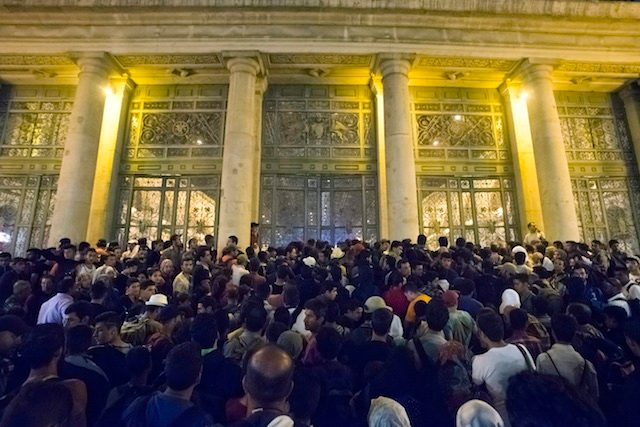SUMMARY
This is AI generated summarization, which may have errors. For context, always refer to the full article.

I cannot, for the life of me, understand why countries turn away refugees.
The number of refugees seeking better shores due to war, conflict or persecution is at its highest today since World War II. How can any nation in the world consider economic consequences over a humanitarian crisis?
How easy it must be for those comfortable in their homes to think of each refugee merely as a number – until we take at least a minute to consider what it would be like if it was our neighborhood rained on by bombs or our people killed for our beliefs or our 3-year-old – still wearing the same red shirt and little sneakers he wore on the day of his departure – who washes up on shore.
Imagine surviving rough waves for days not knowing when your boat will dock or if it ever will, and when it finally does, being turned away by humans – just like you – with families and children who know the value of food, water, safety and a bed, because well, immediately supporting you would be costly to the country.
I’ve seen the numbers and I understand the burden. I know that host countries, when taking in large groups of refugees, must bear a deeply heavy cost. Existing social, economic and environmental problems are compounded. Crime rates may go up. Additional infrastructure have to be built to accommodate refugees. And resources, jobs and services have to be shared with locals, which may further enlarge a cultural and social divide between the two groups. In many cases, the negative impact of taking in huge numbers of refugees – especially the environmental impact – are felt even long after refugees have come and gone.
But the point is this: it is not the first time that the world has experienced this sort of crisis.
We’ve known about the consequences of large-scale refugee populations since the 1970s. We know what works and what doesn’t. And we know that the problem is a solvable one.
We know that no one country can bear the costs of taking in refugees. That the best approach is a joint effort by the international community. We know that proactive programs by host countries – which promote integration and skills development among others – have significant impact. That in these cases, the economic impact of refugees can be positive, as the refugees themselves bring employment, stimulate the economy, and can attract development in otherwise marginal areas.
And we also know that 142 countries have signed the 1951 Refugee Convention, adopted after World War II, wherein the international community vowed to ensure the safety and protection of refugees.
Where are these countries now?
I can’t even think straight when I skip a meal, and know so well the joy of a bed at the end of a day. I know the feeling of comfort of being reunited with my family even after only days of being apart. That I can fathom. Closing borders and giving refugees a chilling reception, I cannot.
So go ahead and talk about the economy to the man who just lost his wife to the waves. Talk about social costs to the mother whose sons were beheaded fighting a civil war the world has largely ignored. Talk about the environment to the father of Aylan Kurdi.
And see if any of those reasons outweigh the simple fact that at the core of it, we are all human. – Rappler.com
Natashya Gutierrez is the Bureau Chief of Rappler Indonesia. She is passionate about human rights issues.
Add a comment
How does this make you feel?
There are no comments yet. Add your comment to start the conversation.